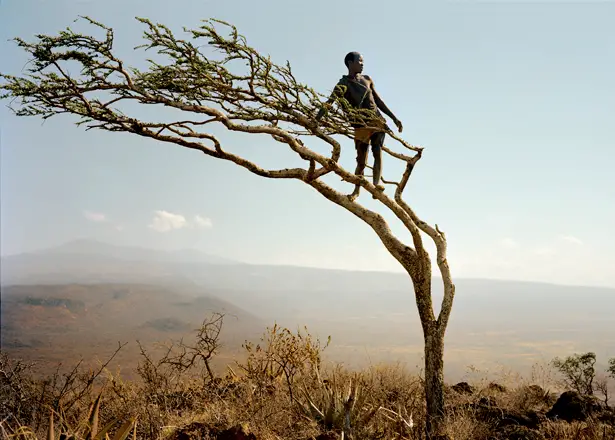Monik Gupta has translated posts from ashdenizen for Oeko Fakt. In this guest post, Monik links our blog about Heart of Darkness with research at the Max Planck Institute.
The recent post about Conrad's Heart of Darkness, and its central theme of consumption of resources in the world, resonates strongly in the German broadsheet Süddeutsche Zeitung.
Astrid Matthey, a scholar at the Max Planck Institute for Economics, questions the widely-held belief that increased wealth and prosperity is closely related to increased well-being, citing research which fails to show such a relationship both in industrial as well as currently developing countries.
"We can no longer afford to leave it to each individual whether to say 'no thanks' in a society focused on consumption; simply because saying 'no thanks' is so incredibly hard for the homo relativus as long as consumption is the measure of all things ... it doesn't allow for the degree to which our current lifestyle threatens the global provision of resources and world peace."
"National Geographic reports on a community of hunter-gatherers in Africa (pic), who happily spend a major part of the day with leisure time, instead of 'striving for more'. Concluding, the author asks: 'What do they know, which we have forgotten?'"
See German version of post about climate change jokes
The other post that's been translated into German is about two very different plays about climate change. There's no exact translation, Monik says, for the English expression "about bloody time", so he went for the politer Das wird aber auch langsam Zeit.
The recent post about Conrad's Heart of Darkness, and its central theme of consumption of resources in the world, resonates strongly in the German broadsheet Süddeutsche Zeitung.
Astrid Matthey, a scholar at the Max Planck Institute for Economics, questions the widely-held belief that increased wealth and prosperity is closely related to increased well-being, citing research which fails to show such a relationship both in industrial as well as currently developing countries.
"We can no longer afford to leave it to each individual whether to say 'no thanks' in a society focused on consumption; simply because saying 'no thanks' is so incredibly hard for the homo relativus as long as consumption is the measure of all things ... it doesn't allow for the degree to which our current lifestyle threatens the global provision of resources and world peace."
"National Geographic reports on a community of hunter-gatherers in Africa (pic), who happily spend a major part of the day with leisure time, instead of 'striving for more'. Concluding, the author asks: 'What do they know, which we have forgotten?'"
See German version of post about climate change jokes
The other post that's been translated into German is about two very different plays about climate change. There's no exact translation, Monik says, for the English expression "about bloody time", so he went for the politer Das wird aber auch langsam Zeit.











No comments:
Post a Comment